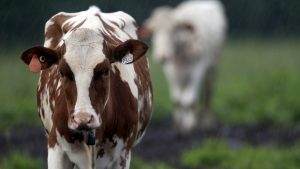 Previous estimates of methane production from the global livestock industry were underestimating the full production by close to 11%, according to a just released study.
Previous estimates of methane production from the global livestock industry were underestimating the full production by close to 11%, according to a just released study.
The study, which was conducted by a group of scientists from the Joint Global Change Research Institute, used data from the Intergovernmental Panel for Climate Change or IPCC from the United Nations, which said that methane represented 16% of the global emissions of greenhouse gas during 2015.
Though emissions from livestock are not the largest methane source overall, the study suggests that animal agriculture might be responsible for recent methane concentration in the earth’s atmosphere.
A sharp increase in the methane pollution could lead to the jeopardizing of the goals that were made during the Paris climate pact of 196 countries, a consortium of scientists warned last December.
That type of target will be increasingly more difficult if the lowering of methane emissions are not addressed rapidly and strongly, the scientists said.
However, a number of researchers suggested different solutions for lowering the emissions of methane by world livestock.
While researchers have looked into seaweed potential for curbing the livestock emissions, the best result was back in 2015, when an Australian team of researchers found that one type of seaweed reduced the production of methane by over 99% in lab tests.
Results have already been seen through using sheep. The seaweed was fed to the sheep at a rate of 2% of their entire diet, and they produced as much as 70% less methane during a continuous period of 72 hours.
Another study at the Oxford Martin School has found that adhering to guideline for health on meat consumption, could help cut the global emissions that are food related by as much as a third before 2050, and widespread adoption of vegetarian diets would lower emissions by over 63%.
The government of the U.S. does not collect reports on emissions from one of the largest sources in the country for greenhouse gases – meat production.
The U.S. Congress has on many occasions renewed the provision preventing the EPA from requiring reports on emissions from producers of livestock, which the EPA termed essential in taking the correct steps to address the climate change problem.
